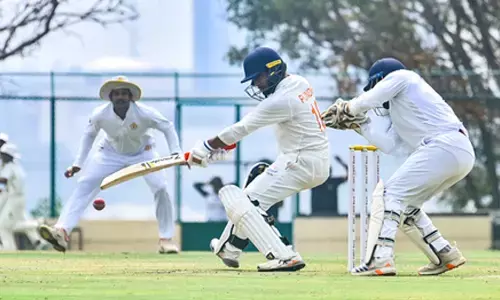Ensuring better digestion of your kids

Ensuring better digestion of your kids
There's more to your child’s digestion than meets the eye, it starts with food or drink entering his mouth and continues until everything he has eaten or drunk has been eliminated by his body
There's more to your child's digestion than meets the eye, it starts with food or drink entering his mouth and continues until everything he has eaten or drunk has been eliminated by his body. His digestive system is responsible for breaking down all that he ingests and for extracting all the nutrients needed by his body.
Take the following steps to ensure better digestive health for your child:
Get more exercise
Limit your child's sedentary activities like playing computer games or watching TV. Instead, encourage him to get his body moving and his blood flowing. Make sure he squeezes in a total of at least 60 minutes a day for any sort of exercise, such as brisk walking, running, jogging, aerobics, yoga, futsal or badminton. The beauty of it is that he doesn't have to do it all in one shot. Physical activity and exercise will help him maintain a healthy weight.
Any kind of exercise that increases his breathing and heart rate is great for his digestion, as it helps to stimulate his intestinal muscles, thus, helping food to move more efficiently through his intestines.
Maintain a healthy diet
Observe the principles of balance, moderation and variety; this means your child should have a balanced diet, which includes foods from all five food groups in the Malaysian Food Pyramid. Eat in moderate portions and have a diet that consists of a variety of foods that will meet nutritional needs.
Be sure to include plenty of fibre-rich foods in your child's diet as they help soften stool, thus, preventing constipation and reducing symptoms of digestive disorders such as haemorrhoids and irritable bowel syndrome.
Some of the best sources of dietary fibre are whole grains, legumes, vegetables and fruits. Let him take his time to eat; the process of digestion begins in his mouth, so, be sure he chews his food properly. With a regular schedule, your child's digestive organs have time to rest between meals.
Drink plenty of water
Water has zero calories, so your child should drink water instead of other things such as sodas or store-bought fruit juices. More may be required if it is a hot day or if your child engages in strenuous activity to replace the fluids he loses through perspiration.
Drinking sufficient water will ensure his digestive health by keeping his stool lubricated so that it travels through his intestines more easily. However, be careful not to overdo it by making him drink too much water too quickly as it can lead to hyponatremia, which is a condition where the electrolyte levels in the blood become dangerously diluted.
Get enough prebiotics and probiotics
The inside of your child's intestines is filled with bacteria, and it is vitally essential that the balance of beneficial and harmful bacteria is maintained. One of the ways you can ensure this balance is kept is by eating foods that are rich in probiotics and prebiotics.
Probiotics can be found in foods such as yogurt, cultured milk drink, cheese and tempeh. Prebiotics can be found in foods such as whole grains, oatmeal, bananas, legumes, onions, garlic and honey.
Limit fat, salt and sugar intake
You should limit your child's intake of foods that are high in fat, salt or sugar, such as chips, savoury crackers, cakes, pastries, fries, sodas and store-bought fruit juices. Your child's body doesn't need them, and they contain a lot of other ingredients such as preservatives or food colouring.
Various problems may result from high fat, salt and sugar intake, like indigestion and diarrhoea, as well as malnutrition and chronic diseases such as diabetes and hypertension, so take care not to neglect your child's digestive health. Remember, a better digestive health means a healthier and happier child!









